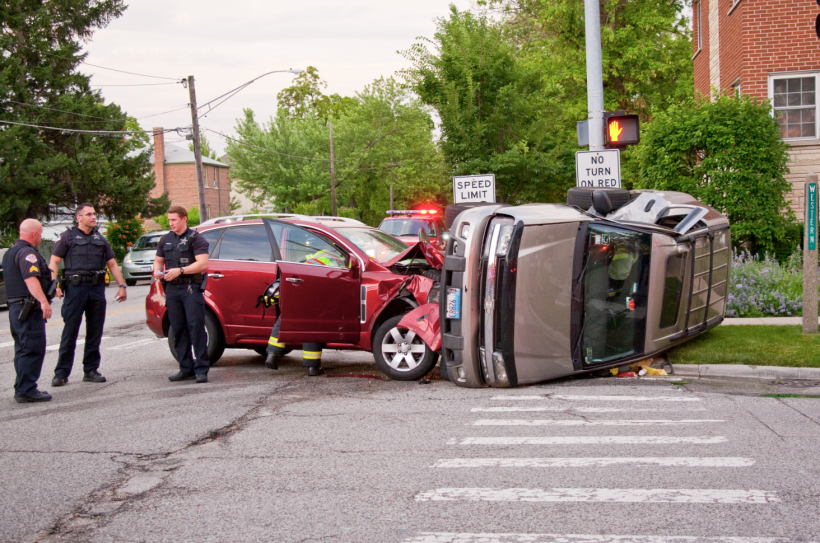If you can do so without interfering with police or ambulance activity, try to get witnesses’ names, addresses, and phone numbers. Also, do not make comments at the accident scene about how the crash occurred or estimates of speeds involved; these comments may later be used against you in court or by insurance companies.
Hire an Attorney
Keep a file of documents related to the accident, including receipts for a rental car, medical bills, and expenses from time missed at work. If you’re looking to hire a skilled attorney, it’s a good idea to browse through the website of trustworthy law firms. Also, determine if traffic cameras or business security systems captured the accident.
If possible, take pictures of the crash scene and any car damage. It’s important to avoid interfering with the ongoing police investigation. Even innocent statements can be twisted to use against you in court. Exchange information with the other driver, obtaining their name, address, phone number, and insurance policy numbers. Also, ask for the vehicle registration and owner information.
Get Help
First and foremost, make sure that you and any passengers are not hurt. If you are, call 911 immediately.
If you have young children, non-ambulatory elders, or disabled adults with you, be careful not to leave them in the car after a crash. Even if the accident was minor, move your car to the side of the road or a safe place nearby to avoid traffic hazards.
Please exchange insurance and contact details with the other driver involved. It’s always a good idea to have an official police report to give your insurance company later, regardless of who is at fault for the accident.
Call the Police
In most cases involving significant property damage, physical injury, or death, the law requires you to call the police. The police will examine the accident scene, interview witnesses, and write an initial crash report.
While you wait for the police, ask to see the driver’s insurance card and take down information, including their name, address, phone number, insurance company, policy number, license plate number, and vehicle model. Additionally, please gather the names and phone numbers of witnesses who may have been present.
Keep a detailed account of all doctors’ visits, treatments, and tests because these may be relevant for future legal proceedings.
Take Pictures
Photographs of the accident scene can help tell a story. They can also refresh memories at trial. Take as many pictures as possible while the scene is fresh before moving the vehicles.
Try to get close-ups of details and use the zoom function on your camera. This will help insurance investigators, and others re-create the accident scene in court.
Look for skid marks, as they can provide valuable evidence of negligence. Also, note weather conditions and road conditions like ice or snow. This information can dispute claims that bad weather caused the crash.
Exchange Information
While assessing property damage and ensuring everyone’s safety, try to obtain all persons involved in the crash names, addresses, phone numbers, and insurance information. This includes drivers and passengers. Get the vehicle’s year, make, and model. Also, establish whether the driver is the car owner or is a friend borrowing it.
Be sure only to exchange information if you can do so in a safe setting. Some drivers will try to avoid giving this information, which typically means they have something to hide.
Get Medical Attention
Immediately after an accident, check yourself and your passengers for injuries. It is crucial to seek medical attention even if you feel okay.
Typically, police officers will offer to take your vitals and give you a preliminary evaluation. Always heed their advice, as they are trained to determine if you have any injuries that require emergency care.
If you can move your vehicle, do so to the side of the road or shoulder instead of leaving it in the middle of the road. Doing this can help prevent your car from being struck by oncoming traffic. Also, exchange information with the other driver, including their name, address, phone number, insurance company, and policy number.
Contact Your Insurance Company
It is highly recommended that you contact your insurance provider promptly following an accident. Then, they can work with the at-fault party’s insurance company to settle the claim. It’s important to call your insurer even if you think the other driver was at fault because your policy may cover damages such as repair costs and rental car expenses.
Avoid discussing the crash with the other driver, as anything you say could be used against you in court. Also, be careful to refrain from signing any release documents that ask for all types of records – many of which are irrelevant to your case.
Laila Azzahra is a professional writer and blogger that loves to write about technology, business, entertainment, science, and health.
